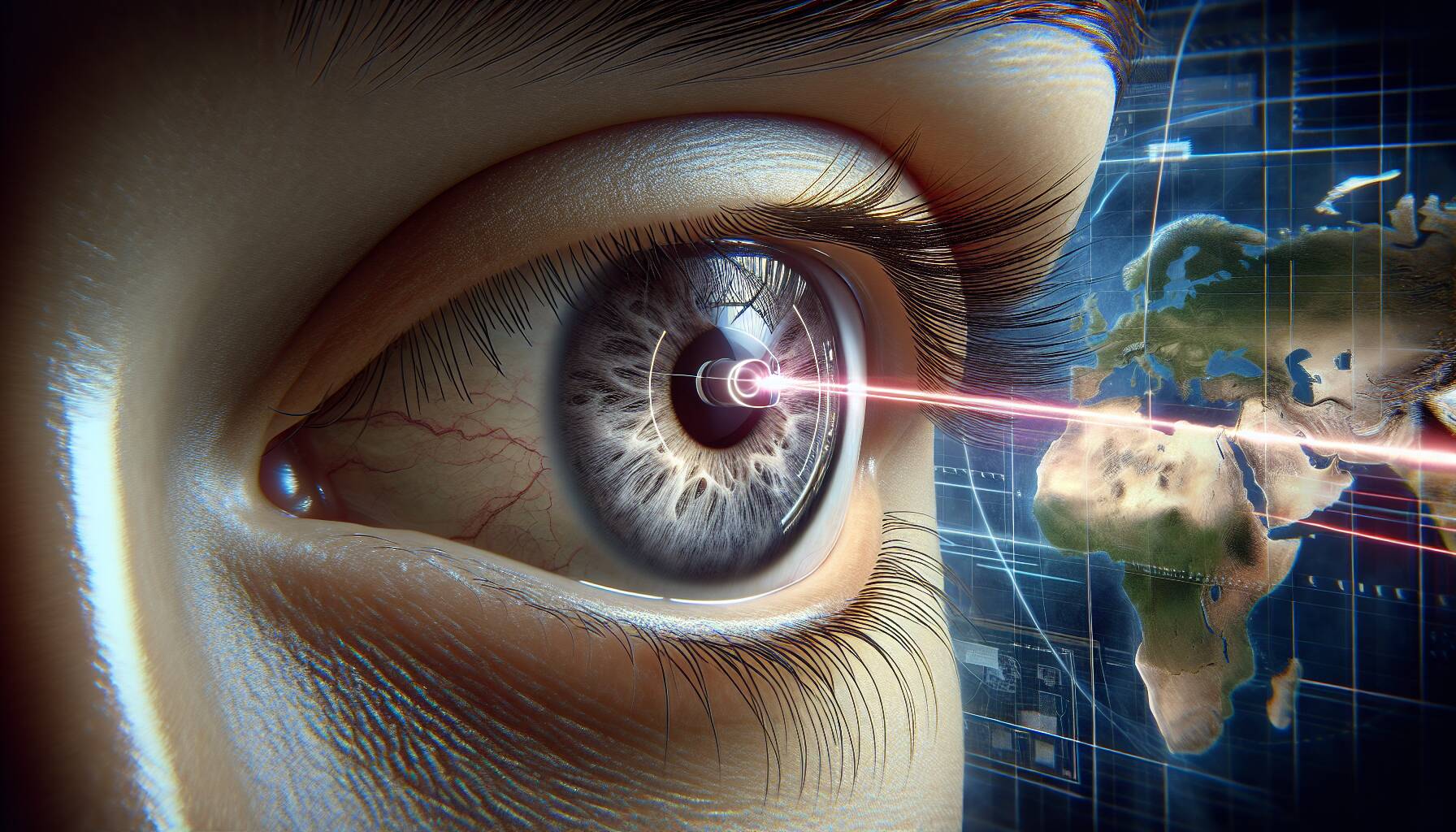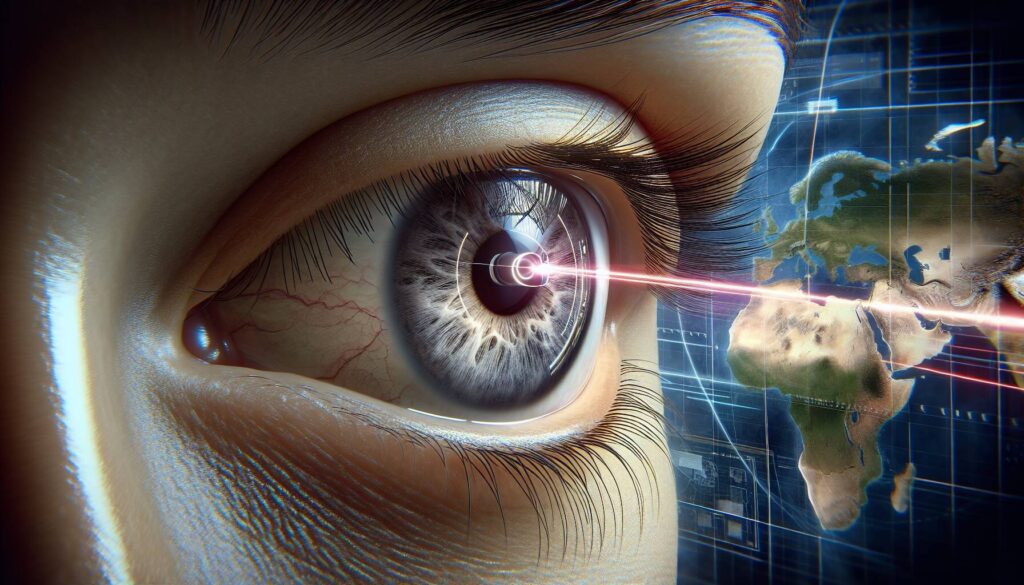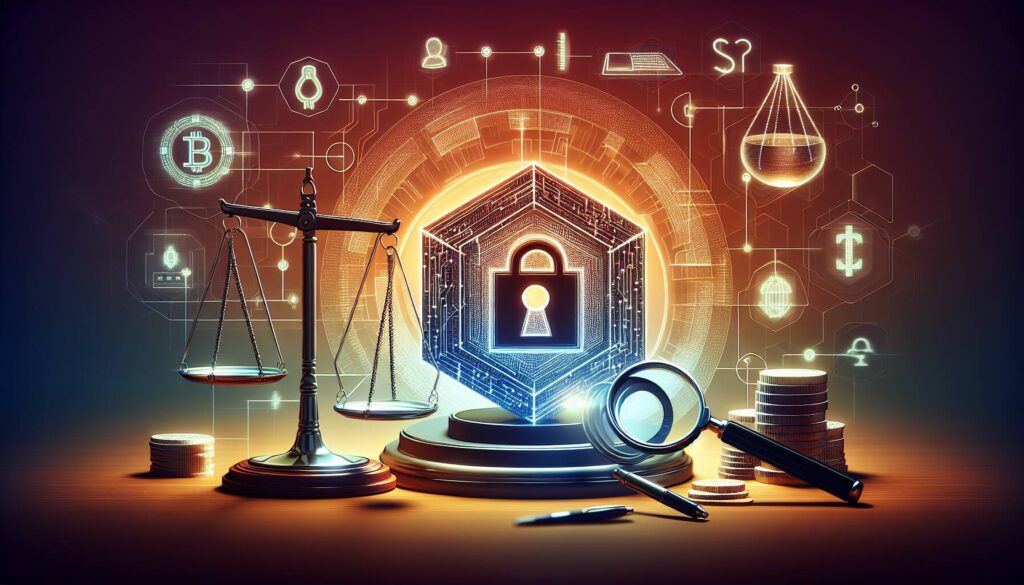The cryptocurrency industry is buzzing once again, this time with the controversial unveiling of Sam Altman’s blockchain project known as World. At the heart of the debate is the use of advanced iris-scanning technology through innovative devices called orbs, which are designed to create secure digital identities for users. During a recent panel discussion at Consensus 2025, World Foundation Advisor Liam Horne addressed the mixed perceptions surrounding the project and its technology.
“The data literally never leaves the orb,” Horne emphasized, countering critics’ claims about data ownership and privacy concerns. He insisted that the system is engineered to prioritize user privacy, a crucial aspect of World’s mission.
World’s orbs, resembling shiny bowling balls, function by scanning a user’s iris to generate a unique identifier, known as a World ID. This identification method, referred to as “proof-of-personhood,” aims to verify that a user is indeed a real human—distinguishing them from bots. However, despite its innovative approach, the project has not escaped scrutiny. Regulatory bodies across Europe, Africa, and Asia have expressed concerns over potential data privacy and consent issues linked to this revolutionary technology.
In an exciting development, the team behind World recently announced their expansion into the United States, set to bring their iris-scanning orbs to six cities: Atlanta, Austin, Los Angeles, Miami, Nashville, and San Francisco. As they embark on this new chapter, the dialogue will undoubtedly evolve, particularly surrounding the implications of biometric data in our digital lives.

Understanding Sam Altman’s Blockchain Project “World”
The blockchain project “World,” led by Sam Altman, has garnered attention and controversy due to its innovative use of iris-scanning technology for digital identities. Here are some key points to consider:
- Iris-Scanning Technology: The project utilizes devices called orbs to conduct iris scans, which verify a person’s unique identity.
- Proof-of-Personhood: The system is designed to confirm that users are real, distinct human beings and not bots, thereby enhancing identity verification online.
- Data Security: According to World Foundation Advisor Liam Horne, the data from the iris scans never leaves the orb, emphasizing a focus on user privacy.
- Privacy-Preserving Mechanism: The iris scans are converted into a World ID, which does not compromise personal data, addressing privacy concerns associated with biometric systems.
Citing concerns from regulators in Europe, Africa, and Asia about data privacy and consent, Horne reiterates that the system is designed to protect user privacy from the ground up.
- Expansion to the U.S.: The project is expanding its presence to six U.S. cities: Atlanta, Austin, Los Angeles, Miami, Nashville, and San Francisco, making technology more accessible.
- Impact on Users: As this technology rolls out, users may benefit from enhanced online security and easier verification processes.
These developments can significantly impact readers by potentially reshaping the way digital identities are verified and protected, highlighting the intersection of technology, privacy, and regulation in the digital age.
World Project’s Controversial Iris-Scanning Technology: A Game Changer or Privacy Risk?
The World project, spearheaded by Sam Altman, has stirred a considerable amount of debate within the blockchain and tech communities. At the heart of the controversy lies its distinctive use of iris-scanning technology to create digital identities. While the potential for innovative identity verification is clear, this approach raises significant questions regarding data privacy and user consent. Similar tech initiatives have found themselves in similar hot waters, making it essential to evaluate the competitive landscape that surrounds World.
One of the major competitive advantages of World’s system is its premise of creating verified digital identities through biometric data. The introduction of the orb devices promises a more secure method of distinguishing humans from bots, a growing concern in the digital age. This is particularly relevant as more businesses and institutions grapple with the challenge of ensuring that online interactions are authentic. The ability to provide a privacy-oriented solution can position World as a pioneer in the realm of proof-of-personhood, differentiating it from competitors that may not prioritize user privacy to the same extent.
However, the introduction of biometric data collection technologies is not without its drawbacks. Critics have voiced concerns about the potential for misuse of personal data and the ethical implications of such invasive technology. Other projects in the field have struggled with backlash, particularly in instances where data security measures were insufficient or public trust was compromised. Additionally, regulators from various regions are keeping a close eye on World, with existing scrutiny from authorities in Europe, Africa, and Asia about privacy rights and implications of consent. This attention could translate into hurdles for operational expansion across different markets.
Individuals and businesses that stand to benefit from World’s technology are likely those seeking enhanced security and identity verification. Organizations in sectors such as finance, healthcare, and government could leverage this technology to combat fraud and improve customer authenticity. However, privacy advocates and consumers concerned about surveillance may perceive this initiative as a step towards an intrusive digital ecosystem, potentially slowing adoption rates among wary users. The dichotomy of enthusiasm and skepticism surrounding biometric solutions will continue to shape user engagement and regulatory responses moving forward.
As the rollout unfolds in major U.S. cities, it will be crucial for World to maintain transparent communication and robust privacy protections in order to address concerns and foster a sense of trust. The path ahead is rife with both opportunities and challenges, making it a fascinating focal point in the evolving landscape of blockchain identity verification technology.















